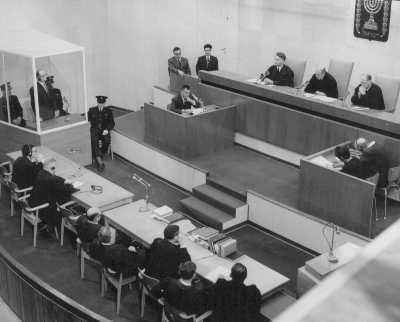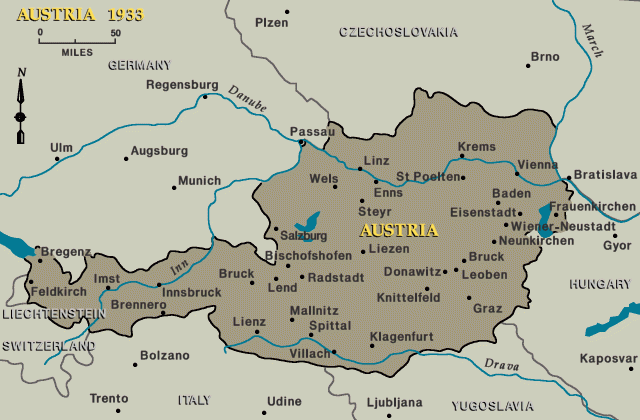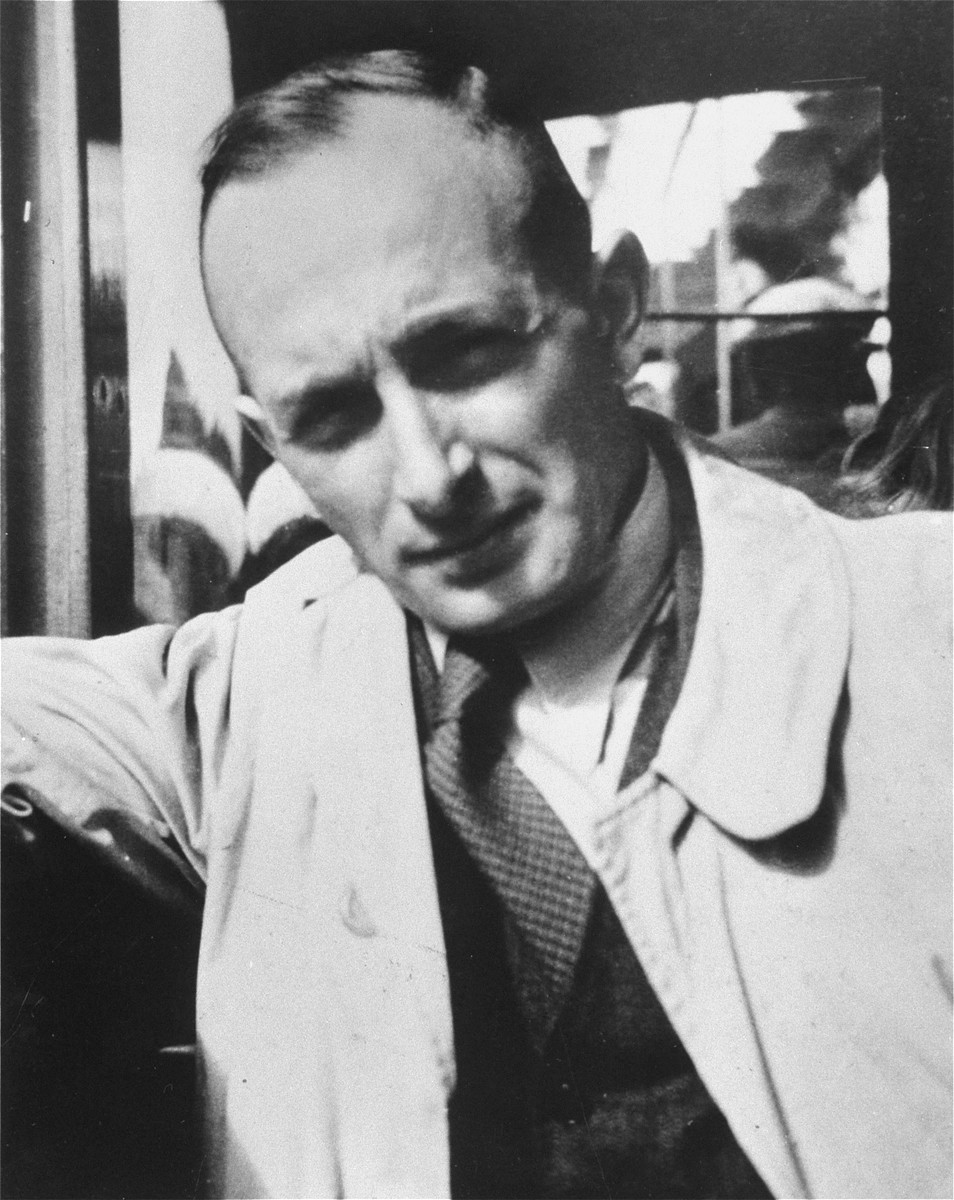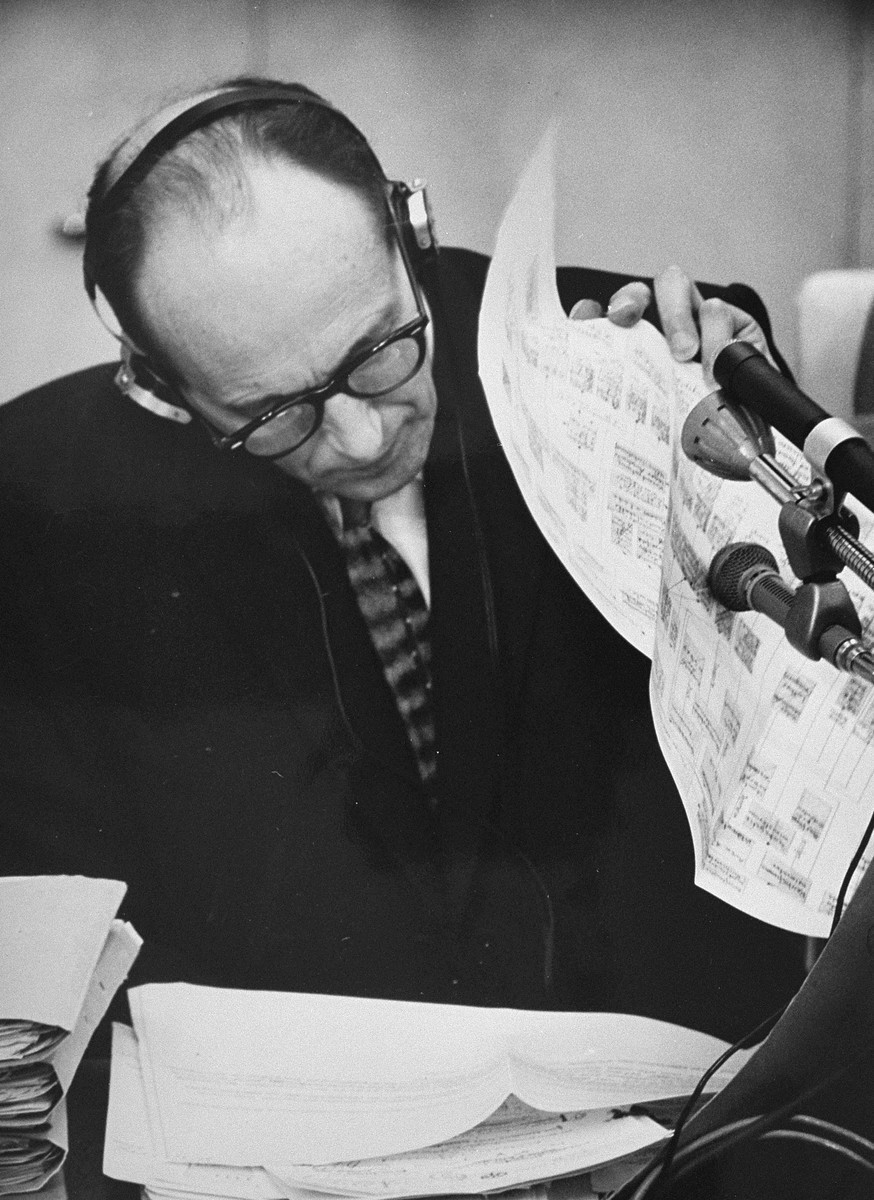
Adolf Eichmann: Key Dates
March 19, 1906
Adolf Eichmann is born in Solingen, Germany.
1914
Eichmann and his family move to Linz, Austria.
1925
Eichmann works in the sales division of the Upper Austrian Electrical Construction Company.
1927-1933
Eichmann works as a traveling salesman for the Vacuum Oil Company in Upper Austria.
1932
Eichmann enters the Austrian National Socialist (Nazi) Party and the SS at the suggestion of an acquaintance, Ernst Kaltenbrunner.

January, 30, 1933
Adolf Hitler, Führer of the Nazi Party, is appointed Chancellor of Germany.
January 1933-August 1934
The Nazis begin consolidating absolute power in the German state, culminating in Hitler proclaiming himself Führer of the German nation.
August 1933
After the Austrian government suppresses the Austrian Nazi Party in June 1933, Eichmann leaves Austria for Germany, where he joins the “Austrian Legion” and engages in military training.
1934
Eichmann joins the Security Service Main Office (Sicherheitsdienst (SD) Hauptamt) with the rank of SS-Scharführer (Sergeant).
1937
After he is assigned to a section of the SD dealing with Zionist activities, Eichmann negotiates with Zionist functionaries and makes an inspection tour of Palestine in order to assess the possibility of large-scale voluntary Jewish emigration to Palestine.
March 11-13, 1938
Germany incorporates Austria in the Anschluss.
August 20, 1938
The Central Office for Jewish Emigration (Zentralstelle für jüdische Auswanderung), an agency Eichmann had designed after the Anschluss, officially opens in Vienna.
September 1, 1939
Germany invades Poland, starting World War II.
Summer 1939
Eichmann becomes responsible for promoting the expulsion of Czech Jews from the Protectorate of Bohemia and Moravia and creates a Central Office for Jewish Emigration in Prague.
September 1939
SS Chief and Chief of German Police Heinrich Himmler establishes the Reich Security Main Office (RSHA), the agency which Hitler will entrust with coordinating the annihilation of the European Jews.
October 1939
Eichmann leads the Reich-wide Reich Central Office for Jewish Emigration in Berlin (Reichzentrale für jüdische Auswanderung). In his first effort at deportation, Eichmann arranged the deportation of thousands of Jews from Vienna and from districts in Bohemia to Nisko in the so-called Lublin Reservation, before plans for further deportations are scuttled.

1940
Eichmann becomes director of Reich Security Main Office (RSHA) section IV D 4 “Emigration and Evacuation” and in October organizes the deportation of nearly 7,000 Jews from Baden and Saarpfalz to areas of unoccupied France.
By December 1941
Hitler, Himmler, Reinhard Heydrich, and other top Nazi officials reach the decision to physically annihilate the Jews of Europe.
March 1941
Eichmann becomes director of RSHA section IV B 4 (Jewish Affairs, or Judenreferat). From this position, Eichmann plays a central role in the deportation of over 1.5 million Jews from all over Europe to killing centers and killing sites.
June 22, 1941
Nazi Germany invades the Soviet Union. SS and police authorities, supported by the military and by local auxiliaries, begin to systematically shoot Soviet Jews.
Autumn 1941
Eichmann is appointed SS-Obersturmbannführer (Lieutenant Colonel) and takes part in discussions in which Nazi leaders plan the annihilation of the European Jews.
October 15, 1941-February 1942
Eichmann's Section IV B 4 coordinates the deportation of tens of thousands of Jews from the so-called Greater German Reich to ghettos and killing sites in the German-occupied Soviet Union.
January 20, 1942
Reinhard Heydrich convenes the Wannsee Conference, presenting his plans to coordinate a European-wide “Final Solution of the Jewish Question” to key officials from Reich Ministries and the Nazi Party. Eichmann, who attends the conference and prepares Heydrich's briefing papers, will play a key role in the implementation of this “Final Solution.”
1942-1943
Eichmann and his aides organize the deportation of Jews from the so-called Greater German Reich, Slovakia, the Netherlands, France, Belgium, and Croatia to killing centers in German-occupied Poland, primarily Auschwitz-Birkenau.
1943-1944
Eichmann and his aides organize the deportation of Jews from Greece, northern Italy, and Hungary, primarily to the killing center Auschwitz-Birkenau.
March 19, 1944
Eichmann arrives in Budapest to personally direct the deportation of Hungarian Jewry.
April 30, 1945
Hitler commits suicide.
May 7, 1945
Nazi Germany signs a document of surrender.
1946
Eichmann escapes from US custody and flees to Argentina with the assistance of some Vatican officials.

1960
Agents of the Israeli Security Service (Mossad) abduct Eichmann from Argentina and bring him to Israel to stand trial.
December 15, 1961
Eichmann is found guilty of crimes against the Jewish people.
May 31/June 1, 1962
Eichmann is hanged at midnight between May 31 and June 1, 1962.
Critical Thinking Questions
What qualities and characteristics of leadership did Eichmann seem to have and to demonstrate?
How did Eichmann defend his actions and choices at his trial?
How do leaders of governments and organizations accused of mass atrocities rationalize their choices?

